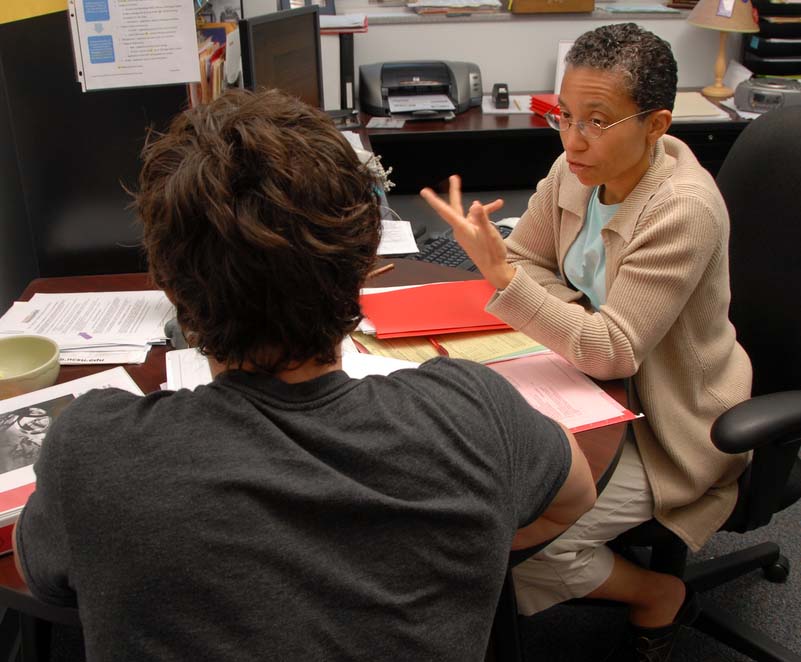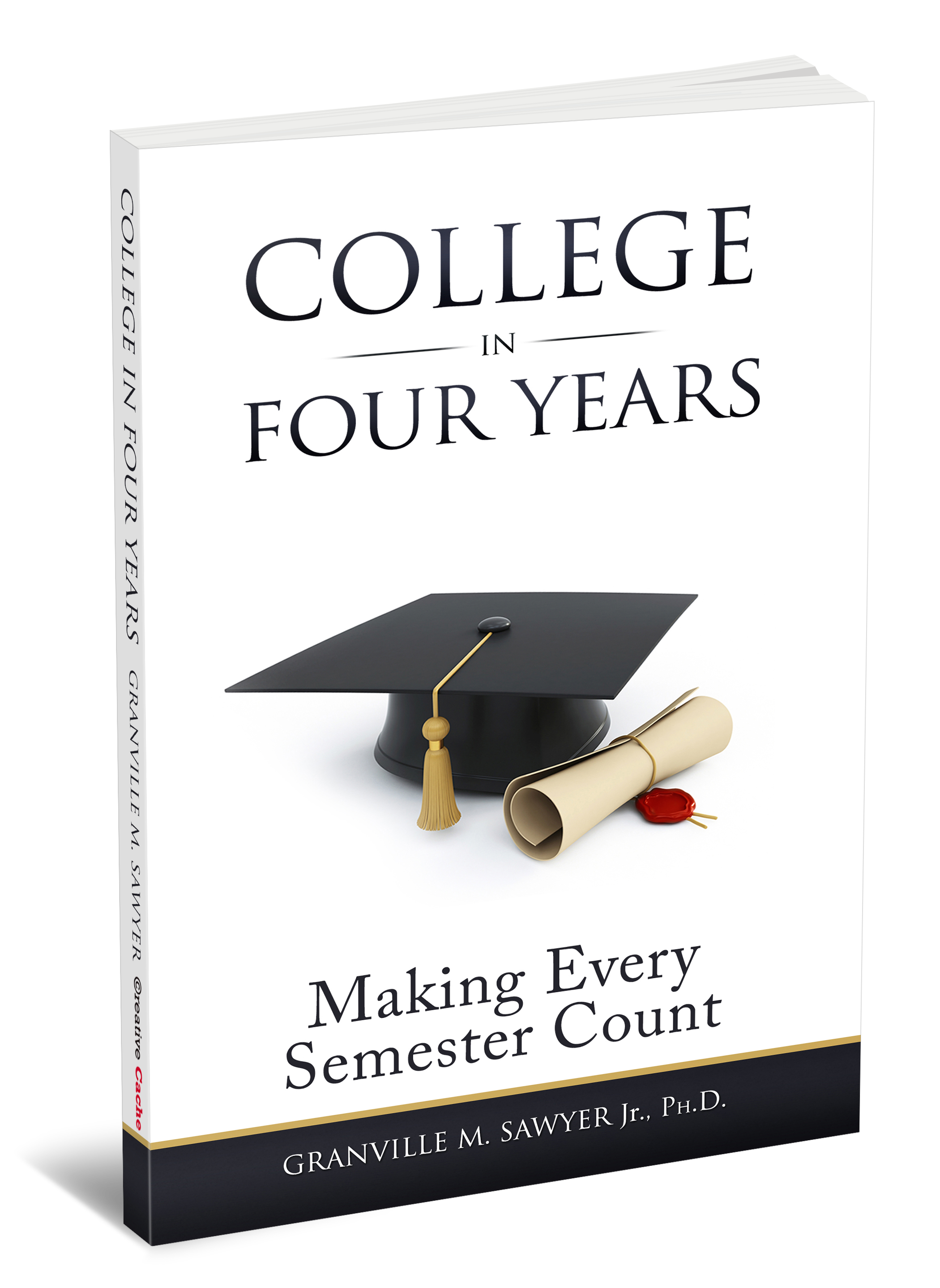Tag Archives: College Prep
Give Your Grad the Gift of Success
GradeUP! Challenge #2: Make Your Syllabus Your Action Plan
 Read the syllabus for each class you’re taking. Really read them – all of them. Find out what is expected of you and when, then use a planner – paper, electronic, virtual – and plan out what you need to do and when you plan to do it so you stay current in all your classes. If you don’t have a system for scheduling your time – get one NOW! Don’t get behind because trying to catch up and keep up at the same time is a losing proposition.
Read the syllabus for each class you’re taking. Really read them – all of them. Find out what is expected of you and when, then use a planner – paper, electronic, virtual – and plan out what you need to do and when you plan to do it so you stay current in all your classes. If you don’t have a system for scheduling your time – get one NOW! Don’t get behind because trying to catch up and keep up at the same time is a losing proposition.
From the syllabus in every class you should:
- Confirm the location and time for class – be there on time from the first day forward.
- Learn the instructor’s name, office location, contact information and office hours so you’ll know who to contact and how to contact them when you have questions about class;
- Find out what you need for class – the textbook (if it’s required) and any other material or equipment, (calculator, software package, etc.) you’ll need to be successful. Get everything now, not having the materials is not an excuse for not doing your work;
- Understand the assignments for each class including reading, homework, projects, reports – know when each is due then schedule when you plan to tackle that assignment so you can turn it in on time;
- Know when exams are scheduled and what they will cover so you can plan when and how to prepare for them;
- Find out how you’re going to be graded in class so you’ll know how you’re doing at any time during the semester (more about this in a subsequent post;
- Note any other information about how the class is going to be run and what is expected of you; and
- Find out anything that you think you need to know to get the most out of each class, now is the time to ask for it.
The next Challenge posts on Tuesday, 2/10/15. Learn more about the GradeUP! Challenge here.
To let me know what you think about this post and the GradeUP! Challenge, please leave a comment below.
GradeUP Challenge #1: Talk To Your Advisor
 One of your most valuable and probably most under-utilized resources is your academic advisor. They do more than sign your advisement form. Your adviser actually has the best view of your academic future – no crystal ball needed. With access to your academic past (what courses you’ve already taken), present (what courses you’re taking now) and future (what you’ll need to graduate) and the experience they’ve gained from successfully shepherding other students through the college experience – they have some valuable skills.
One of your most valuable and probably most under-utilized resources is your academic advisor. They do more than sign your advisement form. Your adviser actually has the best view of your academic future – no crystal ball needed. With access to your academic past (what courses you’ve already taken), present (what courses you’re taking now) and future (what you’ll need to graduate) and the experience they’ve gained from successfully shepherding other students through the college experience – they have some valuable skills.
Meet with your advisor as early in the semester as possible – before the drop/add date in case you need to make changes to your schedule. When you see your advisor do the following:
- Talk to them about your performance last semester. Discuss why you got the grades you did and how to keep doing what you did right or how to fix what didn’t work. They actually have the answers to these questions.
- Ask them to review with you what your curriculum is going forward and what if any changes you need to make or accommodate.
- Look at your present course load – are they aware of any particular challenges? Should you arrange or rearrange what you’re taking this semester?
- Talk to your advisor about scheduling classes so you’re not trying to take a spring course in the fall or a fall course in the spring.
- Talk to you advisor about when you should take your courses to ensure you meet all the prerequisites when you want to take a course that requires them.
Get more information and advice on working with your advisor in Chapter 9 of College In Four Years.
Let me know what you think about this post and the Challenge. Please leave a comment below.
The next Challenge posts on Thursday, 2/5/15. Learn more about the GradeUP! Challenge here.
Study Together, Fail Alone: The Fallacy of Study Groups
Contrary to popular belief, the value of a study group is not to share notes and study together – it is to test your knowledge of material you acquire for yourself. The best way to actually learn and assimilate information is to study alone – by taking your own notes in class, in discussions with your professors or reading assigned material. It is a fallacy to believe that you can use someone else’s notes and knowledge to assimilate knowledge for yourself. Information you seek to acquire from actions taken by others – is proprietary; you can’t buy it, borrow it or steal it, here’s why:
* The person that took those notes learned and assimilated information, then made notes best suited to their learning style, not yours.
* Your learning process did not kick in, no matter how carefully you read their notes. Why? Because you didn’t put in the time on those notes; the person who created them did.
If all you need to do is memorize, then you can probably use someone else’s notes. If you need to understand the material at a deeper level and use it formulate answers to questions and/or solutions to problems, you must do more, you have to know it for yourself.
Let me tell you a story from my book, “College in Four Years,” to illustrate how studying together, might end in your failing alone. Seven students in a class I was teaching formed a study group. They divvied up taking notes and making outlines from class. They met regularly and exchanged notes and problem solutions to study for exams that covered all the material they were responsible for. They all ended up failing my class.
After talking extensively to them as a group, as well as individually, I figured out that they had each mastered about 1/7th of the information in the class – equal to the notes and material that they had been responsible for in the study group. Some students knew more than others but none of them knew much more than they had studied for themselves. If you master just 14% of the class material, there is no legitimate way you’re going to pass.
I explained to them that the value of a study group is to test your understanding of what you already know. Needless to say, the students were skeptical of my theory. So I asked the students to bring me their group notes for the course, with each set identified by the student who made them. I asked the group questions; however, the student who took the related notes could not answer. For the most part, the students did not know or only partially knew answers from notes made by their counterparts. They were surprised.
“We read through every set of notes,” they said, “We were sure we knew the material.”
These students found out the hard way that group knowledge is not the same as individual knowledge. They took a shortcut and relied on the study group to split up the work so each person could do less. A better way would have been the two-step strategy for study groups:
1.Gather and learn information independently by taking your own notes which summarize study material in a meaningful way that you understand and can use.
2.Then, get together and ask one another questions to test everybody’s understanding of the material.
This is how your study group becomes a valuable resource. Your study partners can test your understanding of the material studied much better than you can on your own. The students who do less get less for it – when students do more, they get the most out of it.
WHEN IT COMES TO COLLEGE – CAVEAT EMPTOR

A recent article on NBCNews.com related the story of a young woman and her start-stop-start again academic career. Over the course of a decade, she went to three colleges and into debt and, never managed to earn her undergraduate degree. This once upon a time scholar is now in what she considers a “stable communications job” and doubts she will ever go back to college.
Whether she knows it or not, this young lady’s future is anything but stable. I’ll tell you more about that later so we can address the problem of spending the precious time and money it takes to earn a degree and ending up without one. If this young woman, along with the stakeholders in her life, had researched college and not just applied, accepted and attended – then her academic career might have turned out to be very, very different.
Every student, hopefully with the help of advisors, family and other stakeholders, must gather as much intelligence on the academic institutions they are considering and how that college specifically relates to what they want to achieve by going to college. You are making an investment of time and money that can set the course for the rest of your life – it deserves your utmost consideration.
The above statement is in bold because the information you gather on a college you want to attend is critical to your academic success. It does not matter if you’re thinking Ivy League or Community College, this assessment may be the difference between leaving college with or without a degree. Below is a list to help you start gathering the information you’ll need about yourself and the schools you’re considering in order to find the right fit for you:
- Have you researched the college to determine if potential degree offerings, the faculty (is this a teaching school or a research school), campus (small, medium or large), culture/demographics, location (city, suburban, remote), or even the climate suite you.
- Many students during the course of their college career, change their majors. Is there more than one academic offering that you’d be interested in at this school? Is school, or its graduates, renowned for these majors?
- Have you visited or talked to the colleges and universities you’re considering? Look Books are advertising, designed to make schools look their absolute best. You’ll learn what the real deal is with an in-person test drive of the institution.
- Have you mapped out the financial plan for all four years including tuition & fees, books, room & board, recreation, transportation and contingencies?
- Do you know how people who earned the degree you’re considering faired in the job or graduate school market after graduation?
- If you are attending a Community College, is there an articulation agreement in place that will ensure your admission as an upperclassman at a college or university you want to attend?
- Are you ready to go to college? Be honest. A semester or year delay if far better than an expensive academic disaster.
- Talk to someone who has attended or graduated from the college. Ask them to tell you about their experience. Does it sound similar to what you’re anticipating for yourself?
- Make sure your college choice is your choice; don’t let friends talk you into going to a college to have the experience they want. Stay focused on what you want out of college.
This list is just to get you started. There are many, many questions you should ask. You are assessing the school just like they are assessing you. If you go in with any other attitude you’re going to make mistakes like the young lady I described earlier. Ask your guidance counselor for sources and resources and make your own checklist to assess the college that’s best for you when you visit college websites and make campus visits.
Caveat Emptor – let the buyer beware – there is too much at risk to leave anything to chance.
I mentioned in the first paragraph that the young woman who prompted me to write this post, may seem stable today but will probably face even more challenges in the future. In my next post, I’ll share with you why without a college degree, stable jobs can get very shaky.




